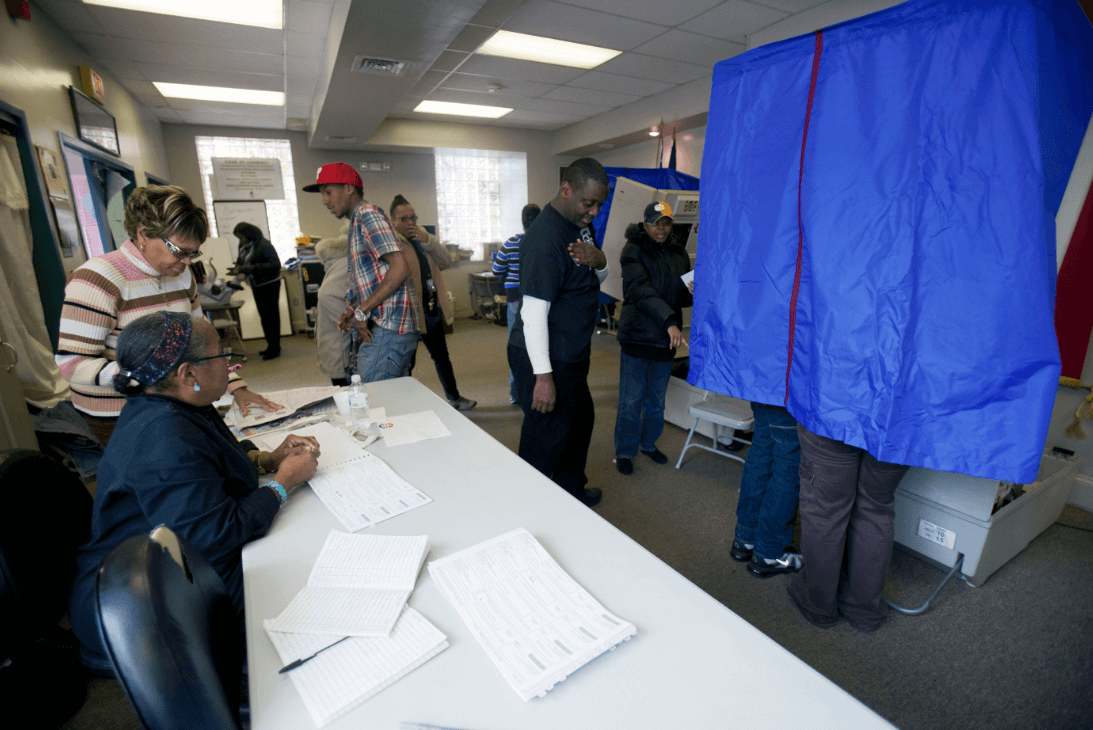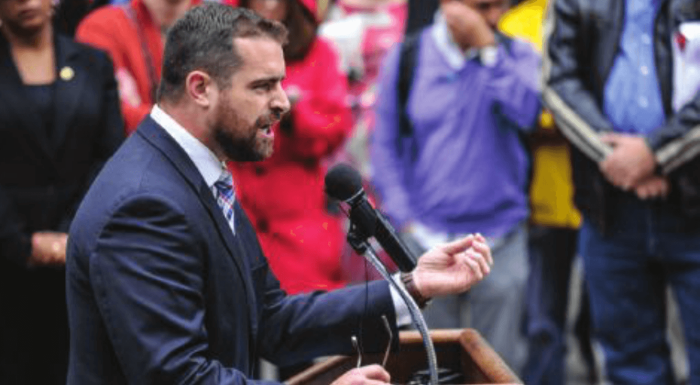Editor’s note: This story has been corrected to reflect that the by-law addressed in this column does not apply to elections that involve public votes, but to Democratic Party nominations for special elections, which are not subject to public vote. We apologize for any confusion the column may have caused. Your local elections don’t mean anything now thanks to a new bylaw that the Chairman of the Philadelphia Democratic Party, Bob Brady, put into effect.
Related: Philly’s ward leaders don’t want to improve voter turn-out Go to room 142 of City Hall and request a copy of the updated Rules of the Democratic Party, it’s free. Then go to page 30 and read the second clause of Section C of Article 4:
“Provided, however, that should the County Committee reject the district caucus nomination, the matter in issue shall be referred to the district caucus for a further consideration and recommendation, and should the County Committee again reject the recommendations of the district caucus, the County Committee shall then make the required nomination; and the aforesaid certificate shall so state.” In a democratic town like Philadelphia, that is election by fiat.Philly, democracy as we now know it is gone. This bylaw got notarized and approved in March 2014, just a month before the May committee elections that Brady ran in andwon.These changes wouldn’t be made public until October 2014, several months after that election. City Commissioner Chairman Anthony Clark approved these changes in March and yet waited nearly seven months to release them. Why is that?
Answer: they probably didn’t want anyone to know.
Related: City Council, please seriously address Philly’s LGBT homeless youth problem Clark didn’t even notify his fellow members of the Board of Elections, City Council CommissionerStephanie Singer (D) and City Commissioner Vice President, Al Schmidt (R).
“Brady made these changes and Clark didn’t even run them by the Board of Elections —I know people on the state level who weren’t even made aware of the bylaw that they were in charge of approving,” Singer said. “I’m curious to know who from the Pennsylvania Democratic Party allowed for it to get notarized.” “We don’t address election changes until such rules are made public to room 142,” Schmidt said. “Only then will such matters affect my role because what individual parties do among themselves is separate.” Such “matters” that would give more power to the leader of the Democratic Party of Philly weren’t made available to voters until after Brady’s re-election in May.
During that election, Singer said that “the D.A.’s office received more complaints about voter violations during that election than in recent years.”
Cameron Klein, communications director of the Philadelphia District Attorney’s Office, said that “about 70 complaint calls were made during those elections” to their voter grievance hotline.
Singer even claims that her signature was added to election results without her knowledgeto unfairly rush the process of voters being able to file those concerns with a judge.
“The Board of Elections put my signature on the certification of those May election winners without my approval nor consent — after every election there is a five-day grace period for grievances to be made…they sped that process up to only one.” In March, Philadelphia Inquirer reported that Singer “attempted to file a complaint with District Attorney Seth Williams against Clark and Schmidt, claiming they had violated technical rules on when to certify the winners of candidates for Democratic and Republican committee posts.” Both men have publicly dismissed the allegations to the press. The special elections last month saw three new members of the Democratic Party become state representatives due in part to the fall of their predecessors in the Kathleen Kain bribery scandal. How democratic were their elections given that this new clause has been in effect? What if a district didn’t want them elected? Today, that wouldn’t matter now as long as the County Committee —collection of ward leaders and citywide power-brokers—has a say in it.
It’s very obvious that former City Councilman Ed Neilson of the 174th District benefited from this special state representative election after losing a potential City Council incumbency in May. The new bylaw allowed the committee to pick Neilson to represent an area on the state level after his constituentsrejected him on the local level.
Even the newly elected state Rep. of the 191st District, Joanna McClinton, aformer chief counsel to ward leader and current state Sen. Anthony Williams, had enough political capital to make herself an overnight stateswoman. The political machine has officially crossed the line with this questionable policy. Voters can now stay home because if “the County Committee again reject[s] the recommendations of the district caucus,” they “shall then make the required nomination” for us. So what’s the point? The Pennsylvania Democratic Party owes us answers as to why they would do this to voters.
Let’s not forgot what city we’re in. Democracy, please stand up.
The Ernest Opinion: Voting in Philly is now pointless thanks to new Democratic Party bylaw

Getty Images
Translation: If your district caucus puts someone forward to represent you in a special election, Brady and the County committee have the right to overrule the decision and choose which Democrat will run.



























